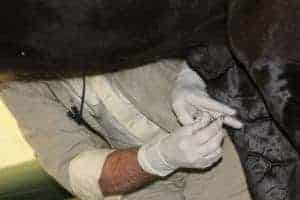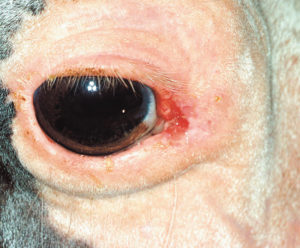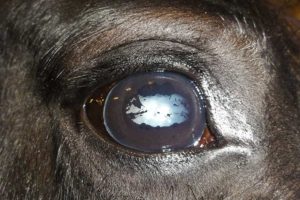
Holistic Horse Care: What Does it Mean?
Here’s what you need to know about holistic veterinary medicine and how vets can integrate it into everyday practice.


Here’s what you need to know about holistic veterinary medicine and how vets can integrate it into everyday practice.

Penn Vet researchers found older horses with small intestinal lesions that survive colic surgery are just as likely as younger horses to develop postoperative reflux or to survive to hospital discharge.

Study: Amikacin is indeed toxic to cartilage, synovial cells, and stem cells. When used preventively for joint injections, lower doses are likely warranted.

Veterinarians successfully used a treatment option from human medicine to reduce squamous cell carcinomas in horses’ eyes.

Ticks can infect horses with an array of diseases including piroplasmosis, ehrlichiosis, and Lyme disease.

Seven measurement tools and methods veterinarians can implement into equine rehabilitation programs to track progress.

Performing “tie-back” surgery earlier than standard practice led to improved outcomes for racing Thoroughbreds.

How equine practitioners can use ultrasound to evaluate the multifidus muscle, which stabilizes and supports the equine back.

While people might extol the virtues of various rehabilitation modalities, those testimonials rarely rely on the science surrounding the techniques.

Learn about this highly contagious virus, how it spreads between horses, why it’s important to diagnose, ways to minimize chances of infection, and how to diagnose and treat the disease.

Something on the X rays looks a bit off—is it significant or of no consequence? It depends on what you find.

Researchers looked at donkeys’ unique hoof care needs. Here’s what they recommend.

British researchers found more success treating EGGD with misoprostol than with a combination of omeprazole and sucralfate, known to effectively treat squamous ulcers.

Find out what behaviors and signs to watch for that suggest visual impairment, and learn how to help horses deal with deteriorating eyesight and blindness.

Blood testing provides a clearer picture of potential cobalt misuse.

Navicular syndrome management changed significantly in 2014 when the U.S. Food and Drug Administration approved bisphosphonates for treatment. Sponsored by Dechra Veterinary Products.
Stay on top of the most recent Horse Health news with